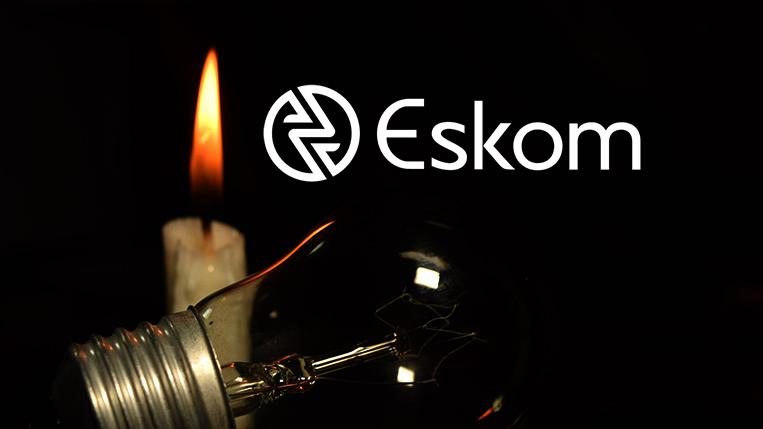Load-shedding will be a reality in South Africa for some time, and many backup power solutions require a significant investment to buy and install, which some residents can’t afford.
At a minimum, South Africans probably want something to cook on, something to watch or use to do work, a light source, and of course, something capable of powering the devices.
A MyBroadband analysis has revealed that residents in the country can get a backup solution to power all of the above, including an uncapped fixed-5G connection, for less than R13,500.
We used two scenarios to build a load-shedding survival kit. They are as follows:
Scenario 1 — The streamer: About 150W
- 1× 65-inch LCD TV — 120W
- 1× smart TV box/decoder — 8W
- 1× Wi-Fi router — 15W
- 1× lamp with LED bulb — 8W
Scenario 2 — Work never ends: Just under 300W
- 1× 32-inch monitor — 70W
- 1× laptop (on charge) — 200W
- 1× Wi-Fi router — 15W
- 1× lamps with LED bulbs— 8W
A sufficient backup power solution for The Streamer scenario would require at least 375Wh of capacity to get through two-and-a-half hours of load-shedding.
On the other hand, Scenario 2 would require a capacity of at least 750Wh.
However, several factors must be considered before choosing a backup, including battery depth-of-discharge (DoD) and the length of load-shedding bouts.
Lithium-ion batteries, while more expensive than lead-acid or gel alternatives, are recommended as they have significantly longer life spans.
These batteries can be discharged to as low as 20% without degrading their capacities. However, lead-acid batteries can be damaged when discharged below 50%.
For reference, the calculation to determine your required capacity is provided below:
Required capacity (Wh) = power draw (W) * hours
Example – Scenario 1:
Required capacity = 150W * 2.5 hours
Required capacity = 375Wh
DoD has a significant impact on how much power a battery can provide.
For example, a 375Wh battery that can discharge as low as 20% will provide 300Wh of power. One with a 50% DoD will only provide 187.5Wh.
We only considered lithium-ion batteries for our load-shedding survival kits.
Therefore, to ensure the backup power solution lasts at 80% DoD, it would require an advertised capacity of around 470Wh for Scenario 1 and approximately 940Wh for Scenario 2.
Stages of load-shedding higher than Stage 4 add four-and-a-half-hour load-shedding sessions to the schedule.
To get through these load-shedding bouts, The Streamer scenario would require a backup with around 845Wh, while Scenario 2 needs at least 1,700Wh.
As the performance of Eskom’s generation fleet is unpredictable, with the power utility often increasing load-shedding at short notice, we only considered backups that can last through four-and-a-half-hour sessions.
The cheapest load-shedding survival kit for each scenario is summarised in the table below.
| Cheapest load-shedding survival kit | |||
|---|---|---|---|
| Scenario 1: The Streamer | Scenario 2: Work never ends | ||
| Component | Price | Component | Price |
| GeeWiz 1,280Wh lithium-ion pure sine inverter | R12,390 | GeeWiz 2,560Wh lithium-ion inverter trolley | R20,990 |
| Axxess Standard 5G | R449* | Axxess Standard 5G | R449* |
| Cheapest charcoal braai / cheapest gas cooker | R399 / R365** | Stainless steel mini camping grill (30cm) | R399 / 365** |
| Total: | R13,238 / R13,204 | Total: | R21,838 / R21,504 |
| *The Axxess Standard 5G package is billed on a month-to-month basis. Therefore, the total price only includes one month’s worth of connectivity. | |||
| **We have not included the cost of wood or charcoal. However, one can expect to pay around R20 per charcoal braai, and R11 per gas braai. | |||
Those without fibre or uncapped Internet at home can get an uncapped 5G package for R449 on a month-to-month basis from Axxess.
Several suitable backup power solutions to meet each scenario’s requirements, and their prices, are listed below.
GeeWiz 1,280Wh lithium-ion pure sine inverter — R12,390 (GeeWiz)
Lalela 960Wh lithium-ion pure sinewave trolley inverter (Scenario 1) — R13,899 (Leeroy Merlin)
Mecer 1,280Wh lithium battery inverter trolley (Scenario 1) — R15,999 (Incredible)
GeeWiz 2,560Wh lithium-ion inverter trolley (Scenario 2) — R20,990 (GeeWiz)
NavaSolar 2,560Wh lithium-ion trolley inverter (Scenario 2) — R27,049 (Takealot)
Mecer 2,560Wh lithium-ion inverter trolley (Scenario 2) — R29,999 (Incredible)
Making a meal
Another primary requirement for a load-shedding survival kit, particularly for those evening sessions that occur around mealtime, is a means of cooking.
We only considered gas or charcoal grills for the kit, as electrically-powered cooking appliances generally have high power draws, which would increase the cost of the power backup you require.
This is a cost that homeowners who already possess a gas or charcoal-powered braai can drop from their load-shedding kit.
However, it is important to consider that cooking on a braai can be limiting, particularly if you want to cook something in a pot that requires even heat for an extended period.
In many cases, gas is a more suitable option as it gives the cook more control, and although gas braais are often more expensive than charcoal grills, they are more economical in the long run.
For reference, Leeroy Merlin charges R275 per 9kg gas refill, which should last for approximately 25 braais, according to The Spruce Eats. This works out to a cost of around R11 per braai.
South African stores sell 5kg bags of charcoal or briquettes for between R39 and R65, which should provide enough fuel for two-to-three braais. This works out to R19.50 or R13.00 on the low end of the scale, or up to R32.50 per braai on the higher end.
Assuming you are subjected to three evening load-shedding sessions a week — or 12 per month — this works out to between R156 and R390 a month for charcoal.
On the other hand, the R275 gas refill should last around two months.
Several low-cost options are available, most of which are designed for camping but would be suitable for occasional use. They are listed below.

















